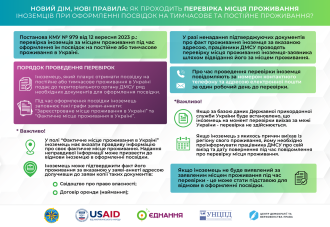Lifelong monitoring for politically exposed persons (PEP) has returned to Ukraine. After all, in October, the Verkhovna Rada passed draft law No. 3419-IX. Such a decision was one of the requirements of the European Union and the International Monetary Fund.
In its earlier publication, CEDEM pointed out that the IMF pays considerable attention to anti-money laundering and combating the financing of terrorism (AML/CFT). This was reflected in Ukraine’s financing program and requirements for us.
Therefore, Ukrainians were once again reminded of the need to comply with FATF standards, which the state committed to implement by ratifying the Council of Europe Convention on Laundering, Search, Seizure and Confiscation of the Proceeds from Crime and on the Financing of Terrorism in 2010.
And it was the reinstatement of enhanced due diligence measures for PEPs in line with the risk-based approach that was one of the structural milestones of this program – Ukraine had until September to do so.
Who is PEP
Under Law No. 361, PEPs are individuals who are (1) national or (2) foreign public figures and (3) figures performing public functions in international organizations (para. 48 of Part 1 of Art. 1).
In other words, these are people who perform or have performed outstanding public functions in Ukraine or in foreign countries (respectively).
Their list is quite broad and includes heads of state, government, ministers (deputies), members of parliament, chairs and board members of central banks, judges of the Supreme Court, Constitutional Court, ambassadors extraordinary and plenipotentiary, heads of administrative, managerial or supervisory bodies of state-owned enterprises, members of governing bodies of political parties, etc. (see the full list in para. 28 and para. 37 of Part 1 of Art. 1 of the Law “On Prevention and Counteraction to the Legalization of Proceeds from Crime…”).
But figures performing public functions in international organizations are officials of international organizations who hold or have held the position of their head/deputy, or who hold or have held any other leading (prominent public) functions at the highest level, in particular in international intergovernmental organizations, members of international parliamentary assemblies, judges and leading officials of international courts (paras. 20 of Part 1 of Art. 1 of Law No. 361).
The Verkhovna Rada renewed lifetime monitoring for PEPs in accordance with the risk-oriented approach
Law No. 3419-ІХ entered into force on October 29, 2023.
It repealed the norm that recognized a person as a PEP for a limited period: during the performance of outstanding public functions and three years from the date of termination of authority.
That is, a person’s PEP status will last for life rather than three years. The “three-year rule” appeared in the Ukrainian legislation on AML/CFT only in 2022. However, it did not last a year, because it contradicted the international obligations of Ukraine on the path of integration into the European Union.
It is important that in the sense of the Law No. 361 a person who “performed” the functions of figures of the relevant category also has the PEP status. That is, these are MPs of previous convocations, former members of the governing bodies of political parties, former judges and many others.
What if a bank wants to refuse?
Such lifelong financial monitoring caused a lot of public criticism, with people pointing out that banks are extremely picky about PEPs and even their relatives. They demand a lot of documents from them, and often just refuse to serve them (so they don’t have to do the monitoring)
Indeed, Law No. 3419-IX imposes draconian penalties on all primary reporting entities (PREs). Therefore, insurers, credit unions, pawnshops, payment system operators, auditors, accountants, lawyers, notaries and others risk to pay up to UAH 1.7 million for violating the requirements for identifying the affiliation of clients and other persons to PEPs, their family members, persons related to them in cases stipulated by the law.
Banks, on the other hand, are subject to a different amount of fine – up to UAH 10 million in accordance with the NBU regulations.
That is, if the bank does not find out during the so-called due diligence of the client that the latter belongs to the category of PEPs (or is a family member of PEP, a person related to PEP, or the ultimate beneficial owner of the client – legal entity PEP), the National Bank will impose a significant fine. Note that in 2023, the NBU regularly imposes large fines on banks for violations of AML/CFT legislation.
(For reference: customer due diligence includes customer identification (verification), establishing the customer’s UBOs (lack thereof), establishing (understanding) the purpose and nature of future business relationships or conducting a financial transaction, continuous monitoring of business relationships and financial transactions, and updating information).
Therefore, banks are left with two options: Take all possible measures to properly identify the PEP in accordance with legal requirements – or refuse to have business relations (transactions) with such a client.
However, the second option is also not very promising. After all, the VRU envisaged such a reaction from banks and established high penalties for groundless refusal to establish (maintain) business relations and/or conduct a financial transaction.
By the way, a situation when PRE refuses to establish (maintain) business relations with clients in order to avoid risks rather than to manage them is called “de-risking” (in layman’s terms – risk elimination).
De-risking is a fairly common problem in the relationship between banks and CSOs. It is regularly mentioned by the European Banking Authority, but the problem cannot be overcome.
In addition, if the PRE refuses to carry out a financial transaction and/or establish (maintain) business relations with a customer who (whose UBO) is a PEP, a family member, a person related to the PEP, it is obliged to provide such customer with an explanation within 5 business days with reasons for the refusal in writing. This means that the person will be able to appeal the refusal to the NBU – and the bank again risks a fine.
Therefore, financial institutions will be left with the only win-win option – to comply with all the requirements of due diligence, and not to engage in “de-risking”.
How do we determine that the CSO is associated with PEP?
In order to determine whether a client or the client’s UBO is affiliated with the PEP, their family members or related persons, the PRE uses several reliable sources of information and takes measures to verify the information received (paragraph 4 of Part 8 of Art. 11 of Law No. 361).
That is, if it is a CSO with a legal entity status, in order to fulfill the legal requirements, the bank must establish the customer’s UBO (which is already an element of due diligence).
Only after that can the bank ascertain whether such individual (UBO) belongs to one of the below categories:
- PEPs;
- Members of their families;
- Persons associated with the PEP.
For reference, Law No. 361 considers family members to be husband/wife or persons equivalent to them, son, daughter, stepson, stepdaughter, adopted person, person under guardianship or custody, son-in-law and daughter-in-law and persons equivalent to them, father, mother, stepfather, stepmother, adoptive parents, guardians or custodians.
Persons associated with PEP are individuals who meet at least one of the following criteria:
- Such individuals are knownto have joint beneficial ownership with PEP of a legal entity, trust or other similar legal arrangement or:
– Have any other close business relationship with PEP;
– Are UBOs of a legal entity, trust or other similar legal arrangement that are known to have been de facto formed for the benefit of the PEP (Article 1, Part 1, paragraph 42 of Law No. 361).
In any case, in our opinion, the application to a CSO of enhanced financial monitoring measures triggered by “affiliation” with PEP is only permissible if such CSO simultaneously has a UBO and such UBO belongs to the above list of persons.
Additional financial monitoring measures with respect to PEPs
Law No. 361 establishes a general rule that, in the due diligence of clients that (whose UBOs) are PEPs or “related” to them, the PRE must additionally implement the following measures:
- Obtain the manager’s permission to (1) establish (continue) business relations, (2) conduct (without establishing business relations) financial transactions in the amount equal to or exceeding UAH 400 thousand (one-time or as several financial transactions that may be linked);
- Take sufficient measures in order to establish the source of wealth and sources of funds to which business relations or transactions are related;
- Carry out in-depth monitoring of business relations on a permanent basis (Part 14 of Art. 11 of Law No. 361).
The PRE is also obliged to take such additional measures within 12 months from the date of termination of the PEP’s outstanding public functions, taking into account its continuing risks, until it is convinced that such risks do not exist.
In turn, Law No. 3419-IX introduces certain mitigation for those PEPs whose outstanding public functions have ceased to be exercised more than 12 months after the date of termination.
Provided that the financial transactions of such a person during this time were of low risk and the PRE does not identify the inherent risk of business relations with such PEP, such PRE shall not take (cease to take) enhanced financial monitoring measures (listed above).
Consequently, CSO clients, which are in one way or another affiliated with the PEP, have a more complex procedure for opening bank accounts and their regular updating (because it requires the permission of the bank manager), as well as are under constant close monitoring of all transactions, in particular, in terms of the sources of origin of funds – and therefore, their documentary confirmation.
To sum up: Banks may apply enhanced financial monitoring measures to CSOs only upon the results of (1) due diligence of such client based on reliable and reasonable information, and (2) if there is a mandatory condition that the ownership structure of such organization includes an ultimate beneficial owner who is a PEP, a member of their family or a related person.
For reference
Due to numerous questions arising in connection with the amendments to Law No. 361 regarding the introduction of the indefinite status of PEPs and the obligation to apply a risk-based approach to them when establishing business relations/services with them, the NBU has introduced a separate chatbot operating in Viber, Telegram and Web chat messengers to provide quick answers to PEPs’ questions.
The instructions are available on the NBU’s official website here.
In addition, the NBU Contact Center has launched a separate telephone line, which can be used by calling 0 800 505 240 and pressing the “1” button.
This service makes it possible to get an answer to questions that may arise when PEP interacts with banks and non-banking institutions, in particular, regarding refusal to provide services, requests from institutions to provide additional information or documents, etc.
This material was prepared by CEDEM as part of the Project Ukraine Civil Society Sectoral Support Activity implemented by the Initiative Center to Support Social Action “Ednannia” in partnership with the Ukrainian Center for Independent Political Research (UCIPR) and Centre for Democracy and Rule of Law (CEDEM).



